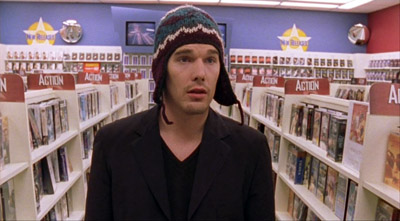
I’ve long been fascinated with “visualization,” mostly because I discovered that I can’t do it. You know that thing when someone says, “Close your eyes. Picture yourself standing on a beach. A woman approaches, carrying a box…?” I have no picture in my mind. I can’t tell you whether there’s other people in the scene, or how old the woman is or what she looks like, or the color or size of the box. It’s more like my brain just establishes the connected concepts and says, “Ok, yup, on the beach, woman carrying a box. Next?”
I learned in college that people actually *do* see a picture in their head. Maybe you, dear reader, are one of them (you probably are). Consider the scene I described. What does the woman look like? What color is the box? Are there other people around? What’s the sky like? You probably have answers to all of those things.
My kids recently taught me the word “aphantasia” to describe this. They’re fascinated with it. “You have no mind’s eye!” they’ll tell me, astonished. Whether they realize they’re borrowing from Hamlet, I’m not sure, but I’ll take it. When we talk about math I’m astonished that they tell me they literally visualize numbers lining up in columns, and when they say things like “carry the 1” they really see the 1 moving over to the next column. I get none of that. Numbers to me are just quantities, they have no visual component. They can’t imagine it working like that.
This isn’t just a random rant about the inner workings on my brain. I’m wondering whether or not it’s precisely because of aphantasia that I’m interested in theatre, and Shakespeare specifically. See, I don’t know or care about how anything looks. I have no picture of Hamlet or Ophelia or Gertrude. People talk about “a director’s vision” and I think, “Nope, I could never be a director.” All I have, and all I care about, is the words. So the words are 99% of the experience for me, and the fact that every production of the play brings forth a new visual interpretation just adds to it.
Audio is excellent, too, by the way. This is not a “read only” type of thing. I’m perfectly happy to have the words acted out for me, to put all the emphasis in the right place. But literally at no point do I picture a snivelly little hunched Claudius or a big fat Claudius. He is entirely defined for me by the words that come out of his mouth, which are what define him in relation to the other characters. So when someone else puts a visual to him and I get to see Claudius? I never, ever think, “That’s not how I pictured him.” I almost always think, “Ok, interesting, let’s see how well the visual connects to the words.”
Ok, that’s it for a Sunday night. Just something I’m thinking about, with no pictures.
